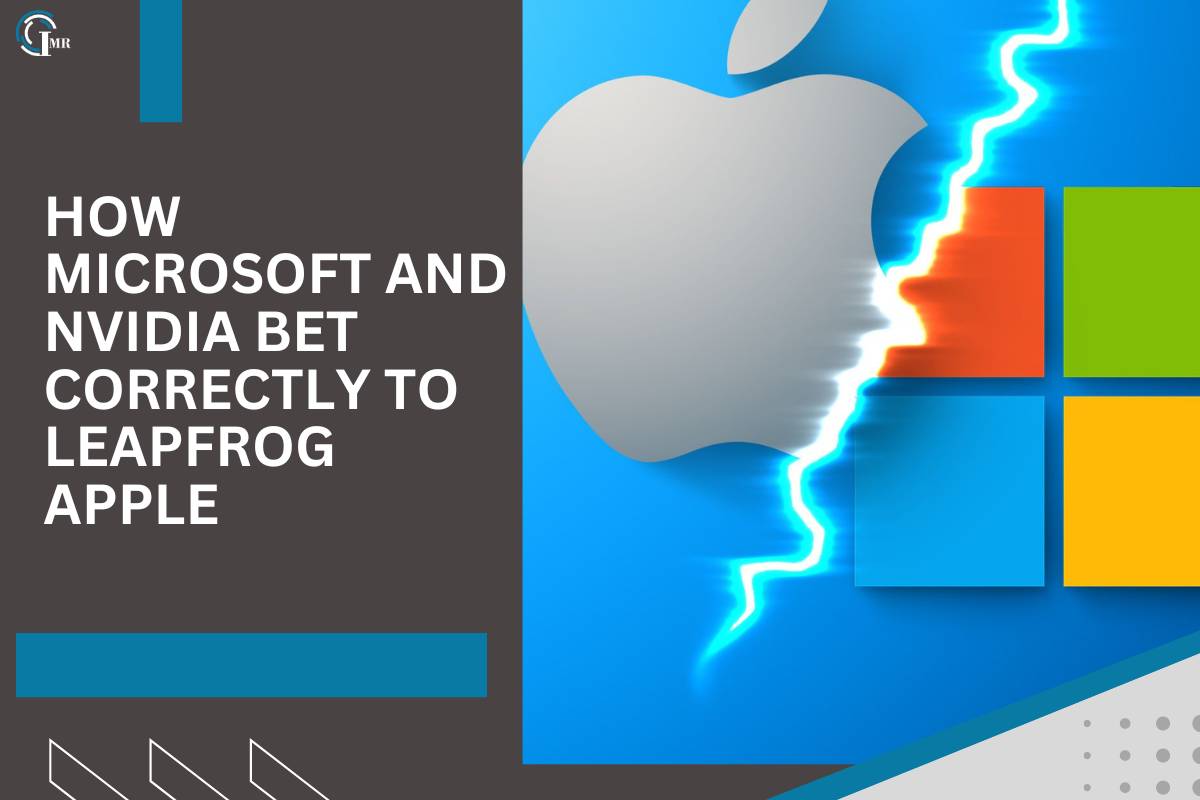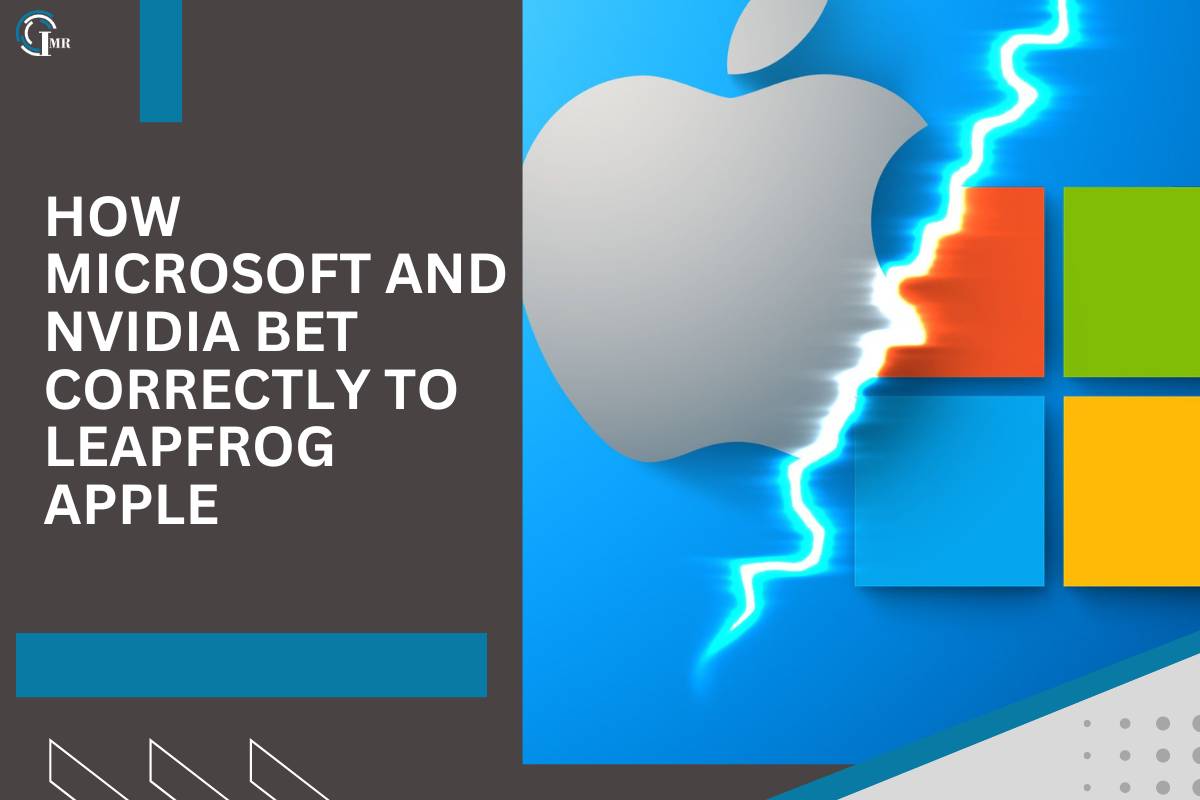How Microsoft And Nvidia Bet Correctly To Leapfrog Apple

(Source – Dazeinfo)
Last month, AI chip giant Nvidia briefly became the world’s richest company, surpassing Microsoft, which had already risen above Apple. This milestone was celebrated with spontaneous applause at a tech industry event in Copenhagen. While Nvidia has since returned to second place, with a market value of $3 trillion compared to Microsoft’s $3.4 trillion, the ascent of these two tech titans is rooted in their strategic foresight and investment in artificial intelligence (AI).
The Power of AI and Foresight
Microsoft’s investment in OpenAI, the creator of the popular AI chatbot ChatGPT, dates back to 2019. Meanwhile, Nvidia’s CEO, Jensen Huang, steered the company towards AI chip development long before the surge in generative AI. These forward-looking bets have paid off, leaving Apple trailing behind.
This year’s London Tech Week could have been renamed London AI Week, with AI dominating every stand and speech. Anne Boden, the founder of Starling Bank, expressed her excitement about the AI revolution reshaping the tech sector. “We thought we knew who the winners and losers were [in tech], but with AI, we are throwing the dice again,” she said.
Investors Focus on AI
At the Founders Forum, an annual gathering of high-level entrepreneurs and investors, the conversations centered around AI. Despite the AI hype, a Financial Times headline noted that most stocks touted as AI winners have fallen this year. Susannah Streeter, head of money and markets at Hargreaves Lansdown, warned, “Given how high valuations have leapt for tech companies, missteps ahead could cause big wobbles in share prices.”
In 2023, anything associated with AI seemed like a surefire investment. However, investors like Saurabh Dayal quickly grew tired of misleading pitches. “I spend a lot of time saying ‘… but that’s not AI’,” he shared. Both investors and clients are becoming more discerning about what constitutes true AI.
Generative AI’s Growing Pains
Current generative AI products have not always lived up to their hype, with issues such as inaccuracies, misinformation, bias, and copyright infringements. Early AI-enabled devices like the Rabbit R1 and Humane Pin received poor reviews. Chris Weston, chief digital and information officer at tech service firm Jumar, observed, “Early experiments set a lot of grand expectations, but when the rubber hit the road there were too many unexpected outcomes.”
Tech analyst Paolo Pescatore believes that the pressure is on for AI firms to deliver meaningful growth. “The bubble will burst the moment one of the giants fails to show any meaningful growth from AI,” he said. However, he is optimistic that this won’t happen soon. “Everyone is still jostling for position, and all companies are pinning their strategies on AI.”
Microsoft’s Environmental Impact of AI
A significant concern is the environmental impact of AI. A study predicted that by 2027, the AI industry could consume as much energy as a country the size of the Netherlands. Prof. Kate Crawford from the University of Southern California and Dr. Sasha Luccioni from Hugging Face have expressed concerns about the sustainability of AI. “There’s simply not enough renewable energy to power AI right now – most of that bubble is fueled by oil and gas,” said Dr. Luccioni.
With so much uncertainty, another shake-up among the world’s richest firms is possible. Apple faces a challenge in catching up with Microsoft and Nvidia in the AI race. As the landscape continues to evolve, the tech giants must navigate the complexities of delivering on AI’s promise while managing its environmental impact.





Comments